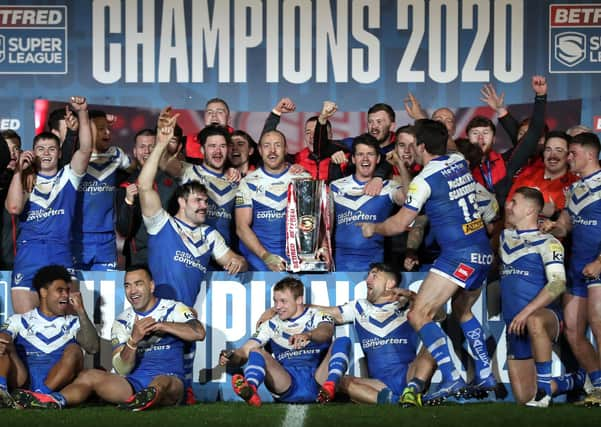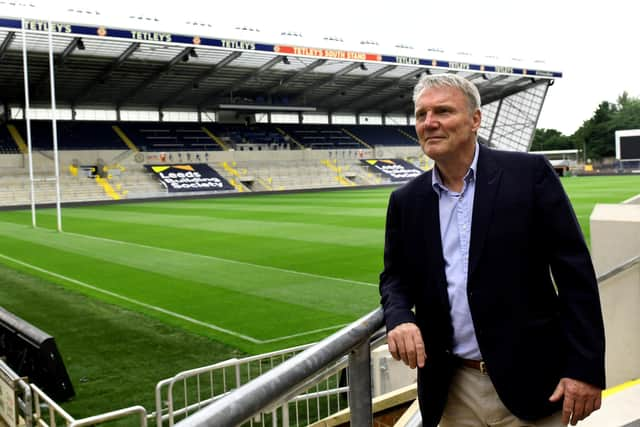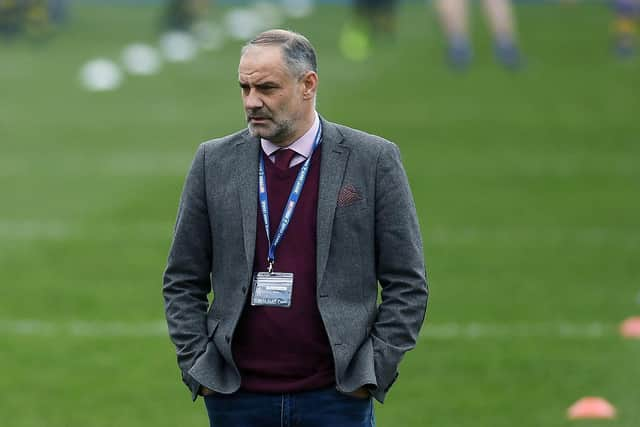Private equity investment in Super League - Leeds Rhinos and Wakefield Trinity chiefs have their say


Clubs recently voted against a deal that would have seen Super League reportedly take around £61m over five years in return for giving up a 27 per cent stake to private equity firm Novalpina Capital.
A number of clubs were keen to accept – or at least explore further – the offer but they needed unanimous approval and that was not forthcoming.
Advertisement
Hide AdAdvertisement
Hide AdBut private equity deals remain topical in professional sport; CVC Capital Partners spent £220m on a 27 per cent stake in Premiership Rugby in 2018 and are in the process of taking a significant interest in the Six Nations.
American company Silver Lake is reportedly interested in buying a 15 per cent stake in New Zealand Rugby having already purchased a £365 million stake in Manchester City in 2019.
Leeds Rhinos are one of the clubs who were against the offer made to Super League.
Speaking to The Yorkshire Post, their chief executive Gary Hetherington last night explained the reasons.
Advertisement
Hide AdAdvertisement
Hide Ad“It is a monumental decision for any sport to make and in the case of rugby league probably the biggest since 1895,” he said.


“And those who are making the decision are doing so knowing it will be their legacy for future club owners and leaders of the game at all levels, not just Super League.
“Private equity companies typically have cash available to invest in businesses where they can see potential for growth and a certainty of making a significant return on their investment.
“In return for their investment, they take a large slice of equity – or ownership – and management control and their primary focus is to generate as much cash return for the businesses and themselves as possible every year.
Advertisement
Hide AdAdvertisement
Hide Ad“So, any sport thinking of introducing private equity has to be prepared for the consequences, which of course, last forever.


“Often the company plans to exit the sport after, possibly, five years and it is up to them who they sell their equity stake too.
“So, a sport or business enters into a partnership with a company but is powerless to influence its successor when time suits the private equity company to sell.”
That said, Hetherington believes there is potential for the right private equity deal to work, even if that is now unlikely given the competition has already been left with a finders fee of £750,000 to stump up to those who brought the failed bid to the table.
Advertisement
Hide AdAdvertisement
Hide Ad“A large cash injection into a sport can provide the opportunity for growth and expansion, which can then provide benefits for years to come,” he added.
“And some companies have expertise in sport and entertainment, which can greatly assist the sport to grow much faster than it would on its own. Ideally, if a sport decides to join forces with a private equity partner – like PRL and CVC – it should be one with expertise to help the sports revenue growth to at least the amount the private equity company is taking out of the sport every year.
“Personally, I do believe professional rugby league has a great deal of potential for growth and a partner company with expertise could be of great assistance. Our game does need extra investment, but only to fund growth – not to give to clubs to simply shore up their shortcomings.”
With that in mind, Hetherington added: “All clubs should be focussed on making their own business bigger and better and on improving facilities and the gameday experience for fans.
Advertisement
Hide AdAdvertisement
Hide Ad“Our players in both Super League and the Championship have certainly delivered a compelling competition with games full of intensity, drama and skill.
“The challenge for our administrators is to deliver the same level of performance. It’s fair to say, so far, we have come up short!”
Wakefield Trinity chief executive Michael Carter voted in favour of the deal. He said: “Clearly we need investment into the sport to try and drive it. I talk about “investment” in inverted commas; there’s lots of ways of providing that investment whether it’s private equity or you go for debt to provide investment for growth.
“There were a lot of channels open to us and this is one that was on the table. As a club, we thought it was one that was worthy of further investigation.
Advertisement
Hide AdAdvertisement
Hide Ad“I don’t think the bid was by any means perfect but I felt it could be explored further. But we live in a democratic world and some clubs felt it wasn’t worthy of that. I respect that and can live with that. What we all encouragingly agree on is that we need to find a way of securing ‘investment’ into the sport so we can grow it. We can’t afford to stand still. If we do, we’ll die.”
Facing a reduced broadcast deal and with the ongoing effects of the pandemic, it is understandable why clubs do agree on that, although that £750,000 bill is certainly far from ideal.
Carter added: “We all knew about the finders’ fee and felt it was a road the majority wanted to explore. To give credit to one or two clubs, they were against it from the outset, but we knew that, and now we have to find the money from somewhere.
“Basic maths says that’s about £70,000 per club. It is a bitter pill to swallow but we didn’t know – when we started this – we were heading into a global pandemic.
Advertisement
Hide AdAdvertisement
Hide Ad“Still, even with the pandemic we did manage to attract an offer; there is some interest in sport at the minute and in rugby league.
“Looking on the bright side of it, there are people out there who want to get involved.”
Support The Yorkshire Post and become a subscriber today. Your subscription will help us to continue to bring quality news to the people of Yorkshire. In return, you’ll see fewer ads on site, get free access to our app and receive exclusive members-only offers. Click HERE to subscribe.
Comment Guidelines
National World encourages reader discussion on our stories. User feedback, insights and back-and-forth exchanges add a rich layer of context to reporting. Please review our Community Guidelines before commenting.